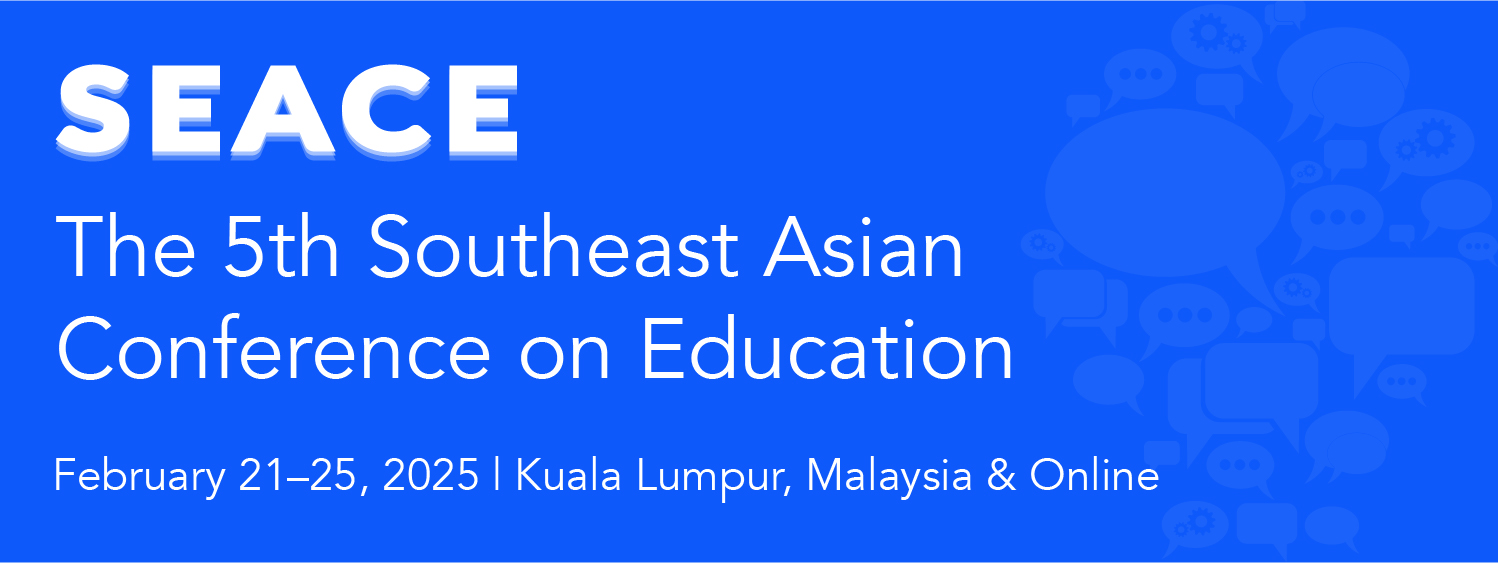Change for Resiliency: One Department’s Strategies for Implementing Culturally Relevant Education with a Focus on Asia and the Pacific
Friday, February 16, 2024 14:30-15:40
Session: Plenary Session
Room: Sawankalok Hall (2F)
Presentation Type: Featured Panel Presentation
The Department of Learning Design and Technology at the University of Hawaiʻi at Mānoa (LTEC) realises programs need to evolve and grow to help students meet the challenges of a rapidly changing world. Consistently addressing systemic change for over five decades, LTEC engages in a collaborative, iterative process for program redesign. This process is complex and requires trust, buy-in, collaboration, and empowerment of all stakeholders.
LTEC is a uniquely positioned department within one of the Asia-Pacific region’s premier research-focused universities. For over 50 years, the LTEC department has continually adapted its programs to serve the needs of a multicultural student population with a growing international student body, particularly from Asia and the Pacific. LTEC’s curricular focus is on the theory and practice of technology integration to enhance teaching and learning. Because the field is ever-evolving, so too are its programs and practices. Examples of recent endeavours include the development of culturally relevant computer science education, scaffolding technology-mediated delivery systems, and providing training and expertise to remote regions experiencing expanded access to technology and connectivity.
In this panel, the LTEC department will provide specific strategies on how institutions might consider culturally-relevant approaches to teaching and understanding contemporary technologies and their influences. The panel will consider factors particularly relevant in Southeast Asia including the global economy, a competitive market, changing technology, complex learning systems, and, most significantly, harnessing regional strengths to incorporate local identity.
The LTEC departmental process incorporates design thinking techniques to foster empathy and strengthen community among the department faculty as well as its students, alumni, and other stakeholders. The process has advanced the department’s success in strengthening working relationships, iterating and evolving programs, and building a greater network throughout the state of Hawaiʻi and Pacific region.
This panel discussion will provide a forum to open an authentic dialogue with individuals and organisations who wish to employ collaborative strategies for improved decision-making and community building, and who may also be grappling with such issues as computer science education, artificial intelligence, complex delivery systems, and other challenges facing Southeast Asia.
Biographies
Chih-Pu Dai
University of Hawaiʻi at Mānoa, United States

Dr Chih-Pu Dai is an Assistant Professor in the Department of Learning Design and Technology at the University of Hawaiʻi at Mānoa. His research interests include Artificial Intelligence (AI) in Education, Extended Reality, Game-Based Learning and Simulation-Based Learning. Specifically, he designs and studies immersive and experience-oriented advanced learning technologies to enhance teaching and learning in science, technology, engineering, and mathematics (STEM) fields for diverse K-12 and adult learners. He aims to support and enhance learning with design features and solutions, as well as with the applications of AI and machine learning techniques in advanced learning technologies. As such, in a research project, he examines the effects of learning support for preservice teachers when they practise teaching in virtual reality with AI-powered virtual student agents.
Dr Dai uses quantitative, qualitative, mixed-methods, and AI and machine learning approaches to address research questions. His work has been published in academic journals such as Computers & Education, Educational Technology Research & Development, British Journal of Educational Technology, Computers & Education: Artificial Intelligence, and International Journal of Artificial Intelligence in Education. In addition, he speaks at conferences of International Society of the Learning Sciences, American Educational Research Associations, and Association for Educational Communications and Technology.
Ariana Eichelberger
University of Hawaiʻi at Mānoa, United States

Ariana Eichelberger is a Specialist and Instructional Designer in the College of Education at University of Hawaiʻi at Mānoa. Ari manages the Instructional Support Group of the College and coordinates the College’s faculty professional development program. As a faculty member of the Department of Learning Design and Technology, Ari teaches graduate and undergraduate courses in instructional design and technology integration. She is also an instructional designer with the College’s Technology and Distance Programs.
Daniel Hoffman
University of Hawaiʻi at Mānoa, United States

Daniel Hoffman - professor of education, curriculum and instruction
Shamila Janakiraman
University of Hawaiʻi at Mānoa, United States

Shamila Janakiraman is an Assistant Professor in Learning Design & Technology (LTEC) at the University of Hawaiʻi at Mānoa. She teaches graduate level courses in LTEC and her research interests are in emerging technologies, attitude change instruction, online teaching and learning, and competency-based education. Shamila is keen on exploring the use of emerging technologies such as augmented reality, virtual reality, game-based learning in facilitating attitude change regarding the learning of different subjects, and attitudinal and behavioural learning regarding environmental sustainability and other socio-scientific topics.
Peter Leong
University of Hawaiʻi at Mānoa, United States

Dr Peter Leong is a Professor with the Department of Learning Design & Technology at University of Hawaiʻi-Mānoa. He is currently serving as the Interim Director for the Technology & Distance Program at the College of Education. Dr. Leong has extensive experience in the development and delivery of online courses and distance education. He was honoured as one of Hawaiʻi’s 2007 top high-technology leaders and was recognised with the University of Hawaiʻi Board of Regents’ Medal for Teaching Excellence award in 2012. He was the President of the Pan-Pacific Distance Learning Association and the President of the International Division of the Association for Educational Communications and Technology, as well as an executive board member of the International Council on Educational Media. Dr Leong was previously a co-principal investigator on the RadGrad National Science Foundation (NSF) grant to evaluate new approaches to improving engagement, diversity, and retention in undergraduate computer science. He is currently a co-principal investigator on the Advancing Culturally-Relevant Computing NSF grant.
Michael Menchaca
University of Hawaiʻi at Mānoa, United States

Michael Menchaca is Chair of the Department of Learning Design and Technology at the University of Hawaiʻi at Manoa. He specialises in distance education, and has designed, implemented, and coordinated online and hybrid programs for over 20 years. He served as editor for the IAFOR Journal of Education: Technologies and Education Special Edition. He was an IT specialist for many years in the public and private sector. He currently teaches and conducts research in the areas of online learning, technology integration, and social justice with technology.
About the Presenter(s)
-Dr Chih-Pu Dai is an Assistant Professor in the Department of Learning Design and Technology at the University of Hawaiʻi at Mānoa.
-Ariana Eichelberger is a Specialist and Instructional Designer in the College of Education at University of Hawaiʻi at Mānoa.
-Daniel L. Hoffman is an Assistant Professor of Learning Design and Technology at the University of Hawaiʻi at Mānoa.
-Shamila Janakiraman is an Assistant Professor in Learning Design & Technology (LTEC) at the University of Hawaiʻi at Mānoa.
-Dr Peter Leong is a Professor with the Department of Learning Design & Technology at University of Hawaiʻi-Mānoa.
-Michael Menchaca is Chair of the Department of Learning Design and Technology at the University of Hawaiʻi at Manoa.
See this presentation on the full schedule – Friday Schedule





Comments
Powered by WP LinkPress